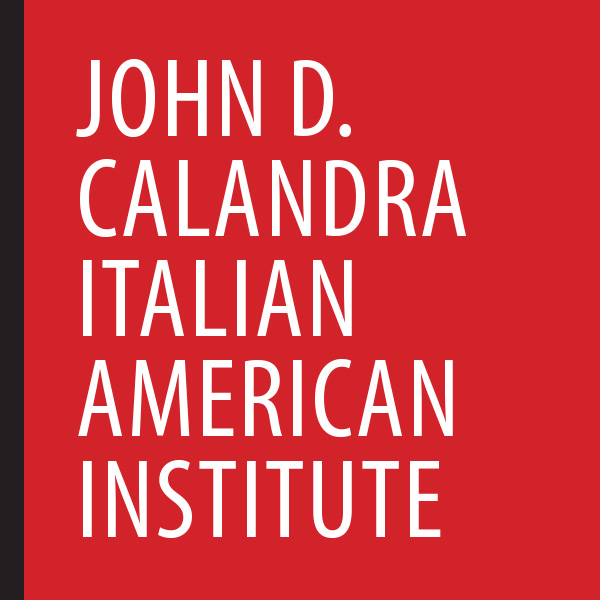Fascism, Anti-Fascism, and the Italian American Community
A Conference in Commemoration of Carlo Tresca Presented by The John D. Calandra Italian American Institute of Queens College/CUNY and The Center for the Humanities, The Graduate Center/CUNY
Friday, February 9, 2001
Dinner at John’s Restaurant
Fascism, Anti-Fascism, and the Italian American Community
Benito Mussolini’s seizure of power in Italy in 1922 sharply divided Italian Americans. Fascist organizations formed in major cities of the United States and Blackshirts paraded the streets of America, while mainstream Italian American newspapers and the prominenti helped to make Mussolini a popular hero in the ethnic community. Italian American opposition to Mussolini came from an anti-Fascist movement composed largely of radicals, labor leaders, and liberal intellectuals – chief among the anti-Fascists was anarcho-syndicalist Carlo Tresca, editor of Il Martello. Tresca was the most ceaseless and popular figure in the anti-Fascist camp, the chief enemy and target of Mussolini’s agents in America. Throughout the 1920s, bloody clashes between the two groups erupted in the streets of New York, with Tresca often leading the anti-Fascists.
After 1929, when Mussolini suppressed the Blackshirt organizations in the United States, Fascism took on the more subtle form of political and cultural propaganda. Nevertheless, Mussolini’s invasion of Ethiopia, followed by Italian intervention in the Spanish Civil War, galvanized both Fascists and anti-Fascists. It was Pearl Harbor, however, that proved the turning point for the community’s encounter with Fascism: virtually all Italian Americans, including the once pro-Fascist prominenti, abandoned their support for Mussolini and declared themselves loyal Americans. Anti-Fascists and prominenti organized an array of organizations to support the war effort and fight Fascism, although often with old antagonisms still dividing them.
On the night of January 11, 1943, Tresca was gunned down as he left his office, located at the corner of Fifth Avenue and 15th Street. Some speculated that pro-Fascist forces, possibly headed by Generoso Pope, were behind the murder, or that his communist enemies were responsible; others believed that he was the victim of an organized crime figure with personal or political motives. Regardless of who was to blame, Tresca’s death symbolized the end of the era of militant Italian immigrant anti-Fascism.
Program
Coffee: 9:30 am
Welcome: 10:00 am
- Hon. Giorgio Radicati, Consul General of Italy in New York
- Dr. Frances Horowitz, President, The Graduate Center/CUNY
- Dr. Russell K. Hotzler, Interim President, Queens College/CUNY
- Dr. Joseph V. Scelsa, Acting Vice President for Institutional Development, Queens College/CUNY
- Professor David Nasaw, Director, The Center for the Humanities, Graduate Center/CUNY
Session I: 10:30-12:30
Chair: Professor Philip V. Cannistraro, Acting Executive Director, The Calandra Institute
- Professor Nunzio Pernicone, Drexel University: “Carlo Tresca, Deus Ex Machina of Anti-Fascism”
- Professor John P. Diggins, The Graduate Center/CUNY: “Mussolini, Fascism, and the Italian American Community”
- Professor Philip V. Cannistraro: “The Duce and the Prominenti: Fascism and the Crisis of Italian American Leadership”
Lunch Break: Participants on their own, 12:30-2 pm
Session II: 2-4 pm
- Professor Fraser Ottanelli, University of South Florida: “Radicalism and the Shaping of Ethnic Identity: Italian American Anti-Fascist Volunteers in the Spanish Civil War”
- Professor Charles L. Killinger, Valencia Community College: “Anti-Fascism in New York: The Mazzini Society, Exiles, and Italian Americans”
- Professor Gerald Meyer, Hostos Community College/CUNY: “L’Unità del Popolo and the Communist Opposition to Fascism”
Concluding Remarks
In 1908 John Pucciatti, an immigrant from Umbria, opened John’s Spaghetti House at the same 12th Street location where it continues to operate under owners Mike Alpert and Nick Sitnycky, who purchased it in 1972 from John’s son Daniel. John’s quickly became the favorite meeting place for Italian American “sovversivi,” and until 1940 its advertisements carried the phrase “A place for all radicals.” Carlo Tresca ate here regularly, sometimes in John’s private apartment upstairs.
For further information about the conference and dinner, call (212) 642-2094

Recent Comments